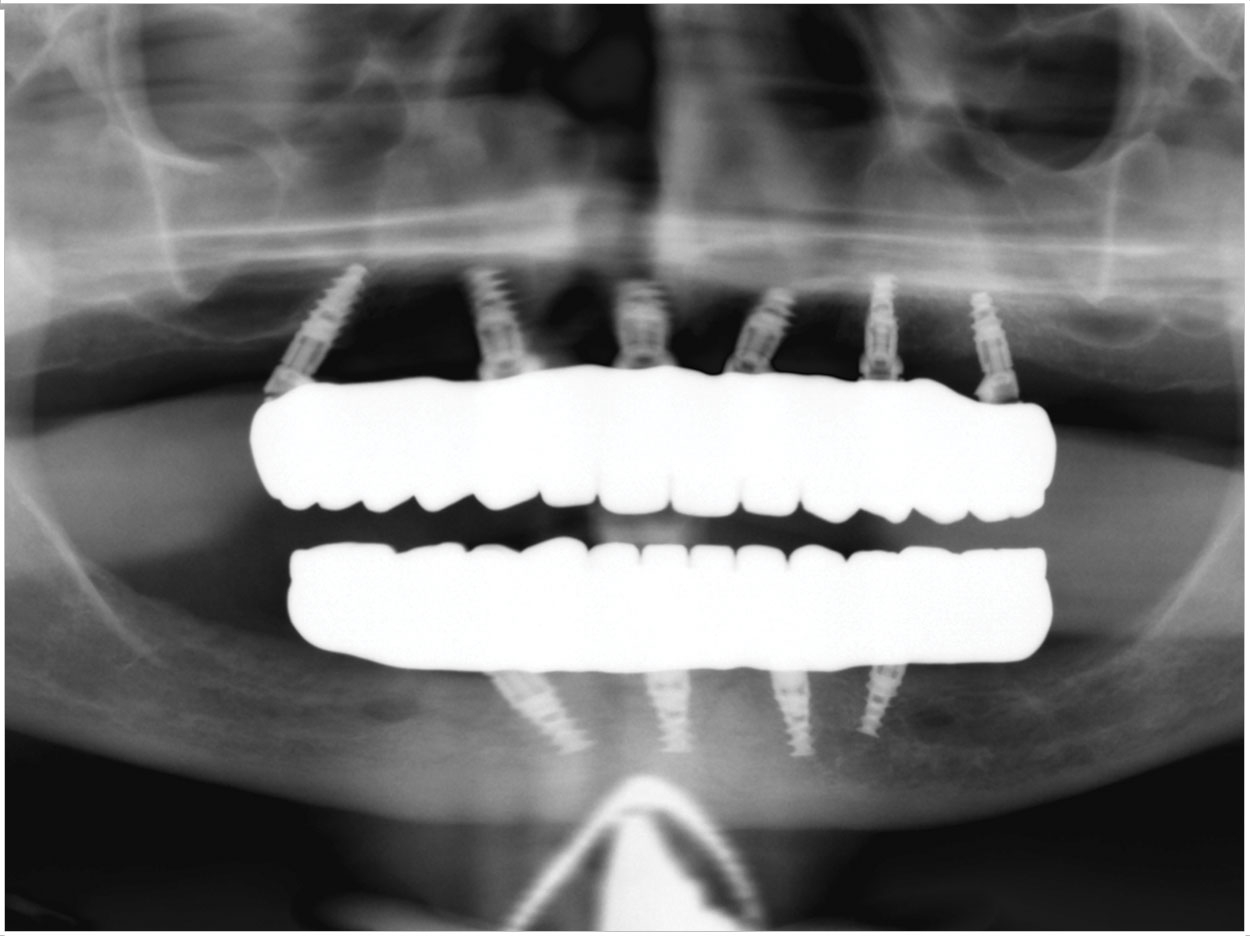
Implants in edentulous and partially edentulous mandibles demand long-term reliability. One recent study of 470 patients who underwent mandibular implant placement at a private prosthodontics practice and received follow-up care for 10 to 27 years examined their performance.
Variables included patient sex and age; degree of edentulism (fully versus partially edentulous); implant location, size, and type; time of loading (delayed versus immediate), bone quality, prosthesis type, and the presence of other implants.
Of the 2,394 implants, 176 failed for an overall cumulative survival rate (CSR) of 92.6%, which is comparable to previous long-term studies. The 1,482 implants in edentulous mandibles saw a 92.6% CSR, while the 912 in partially edentulous mandibles saw a 92.7% CSR.
However, the researchers did note significant differences in CSRs between anterior and posterior locations and between rough- and smooth-surfaced implants in addition to some prosthesis types, ages, and bone qualities.
Differences between implant locations, patient age groups, bone qualities, and prostheses did not suggest any remarkable trends, though. Also, none of the variables showed any significant effect on long-term implant survival.
The researchers concluded that the high CSRs support the use of endosseous dental implants as a long-term treatment option for the rehabilitation of the edentulous and partially edentulous mandible. The study, “A Long-Term Retrospective Analysis of Survival Rates of Implants in the Mandible,” was published by The International Journal of Oral & Maxillofacial Implants.
Related Articles
Top 8 Implants and Implant Systems
Hybrid Ceramic Outperforms Feldspar in Implants
Treatment Planning for Dental Implants












